Special Educational Needs
At Prince Avenue Academy we believe that each pupil has individual and unique needs. Sometimes, despite the class teacher’s support and differentiated planning, some children have difficulty in learning. We acknowledge that a significant proportion of pupils will have special or additional educational needs at some time in their school career. Some pupils may require help throughout their time in school, while others may need a little extra support for a short period to help them overcome more temporary needs. At Prince Avenue we provide additional help and support for pupils who have additional needs supporting their learning and ensuring they are fully included in all school activities.
-
To identify pupils with special educational needs and disabilities and ensure that their needs are met
-
To ensure that children with special educational needs and disabilities can access the activities of the school
-
To ensure that all learners make the best possible progress
-
To ensure that learners express their views and are fully involved in decisions which affect their education
-
To promote effective partnerships and involve outside agencies when appropriate
-
To identify, assess, record and regularly review pupils’ progress and need
-
To involve parents/carers in planning and supporting at all stages of their children’s development
-
To work collaboratively with parents, other professionals and support services
-
To ensure that the responsibility held by all staff and governors for additional needs is implemented and maintained.
What are Special Educational Needs and Disabilities?
Special Educational Needs and Disabilities, or SEND, is a term that is used to describe pupils who have needs over and above those that can be met by good quality classroom teaching. These needs may be within speech and language; cognition and learning; social and communication difficulties; or social and emotional difficulties. They may be for a short period or throughout a child’s educational life. They may be identified before a child has even entered school or they may come to be recognised at a specific point in their education.
What do we do for SEND children?
Children who are not meeting expected learning goals and are making less than the expected rate of progress are identified as needing extra help over and above normal classroom differentiation and are placed on a graduated provision of support. Initial additional support given is called SEN Support. Class teachers will meet with parents to discuss their concerns, and parent views and pupil views will be gathered along with the aims of the additional support. Class teachers will meet termly with parents to review progress, successes, pupil and parent views and next steps. This support will be led and monitored by the class teacher and children will receive additional support from both class teachers and learning support assistants (LSAs). Intervention groups run by class teachers and LSAs will take place alongside additional individual targets where appropriate.
If, despite this help, we are still concerned that a child is not making progress we will increase the help that is given to a child. The SEN staff will complete a range of standardised assessments as appropriate and give support and guidance to the staff. The SENCO may also ask for advice from professionals not directly employed by the school, for example the educational psychologist, a speech and language specialist, a behaviour specialist or a nurture specialist. Some external agencies need to be accessed following the completion of an Early Help Assessment with parents. This will be completed in school and the action plan agreed. Additional interventions may be introduced to address specific learning goals and will be discussed and arranged alongside the SENCO. In a small number of cases where a child continues not to make progress we will consider requesting an Education, Health and Care Plan (EHCP) from the LA. This will be discussed with the parents beforehand. For pupils who are assessed and given an EHCP, the school will hold statutory reviews and meet all statutory requirements in relation to these plans.
Where can I find out more about SEND and the Local Offer?
The local authority produces a Local Offer to serve as an information point about all the services that be accessed within the LA. This can be accessed at https://livewellsouthend.com/kb5/southendonsea/directory/home.page
The Local Offer has two key purposes:
- To provide clear, comprehensive and accessible information about the support and opportunities that are available; and
- To make provision more responsive to local needs and aspirations by directly involving children and young people with Special Educational Needs, parents/carers and service providers in its development and review.
The information will be available in one place and accessed through Southend-on-Sea Borough Council’s website. The local offer will allow parents and young people to see what support is available to them within the Borough and how to access this help.
Parents can access our Local Offer through the Southend Borough Council’s information directory known as SHIP. This directory may also direct you to various support groups, services and opportunities available to you and your family within the borough. Please follow the link below and click on a beach hut:
Southend Authority SHIP directory
Some of the organisations below may also be able you to answer any questions you may have about additional educational needs.
- Autism Anglia is a good website, they offer a range of autism specific information for the family - http://www.autism-anglia.org.uk/get_support/for_families/for_families
- SCOPE can offer support locally regards disabilities our local contact being - Linzi.Lee.Ellison@scope.org.uk/ 07436831218. She can provide information regarding any area of disability that may be affecting an individual or family.
- Oaasis - http://www.ace-ed.org.uk/
- Dyspraxia Foundation. Dyspraxia: Developmental Coordination Disorder Information and support for Dyspraxia.
- The National Autistic Society - Information and support for Autism and Asperger Syndrome.Parent to Parent (P2P) is a confidential telephone support service for parents and carers of an adult or child on the autism spectrum. (recommended by the NAS)08088004106
- NAS Recommended Autism Helpline. Call 0808 800 4104. Lines are open 10am-4pm, Monday to Friday (free from landlines and most mobiles). We give impartial, confidential information, advice and support to people on the autism spectrum, their families, professionals, researchers and student
- Afasic - A parent-led organisation that helps children and young people with speech and language impairments and their families. Probably best used after a diagnosis by a Speech and Language Therapist.
- https://ican.org.uk - An excellent website, clear explanations and further links, general ideas on helping all children with their communication.
- ADHD - http://www.adhdandyou.co.uk/
- VISUAL IMPAIRMENT - www.rnib.org.uk
- BENEFITS - http://www.dwp.gov.uk/ - Information and contacts about possible benefits you may be entitled to.
send information report 2024 25.pdf





